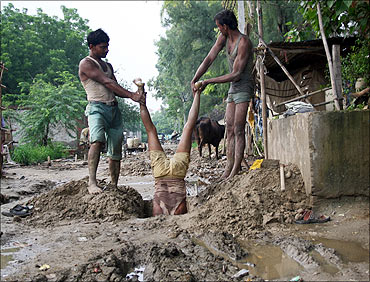
To see and feel this, try driving to the Delhi-Noida toll bridge (the "DND"), and go past Noida on the expressway to Greater Noida.
It isn't perfect, and there are many details that could be handled better, from the assets built to how we use them.
These include unfinished verges with construction debris near the Ashram crossing, cambers without proper drainage that get flooded in some stretches of the expressway, motorcyclists sheltering from the rain under the flyovers/overpasses spilling on to the expressway, pedestrians with no place to cross, trucks at night without even reflectors, trucks that are parked without hazard lights, tractors, and occasional cattle.
Most dangerous are the undisciplined drivers who act as if they are puttering along at 30 km per hour while going at the 100 km speed limit or more, or who drive on the wrong side against oncoming traffic.
And the resurfacing of the road in parts leaves much to be desired...
. . .
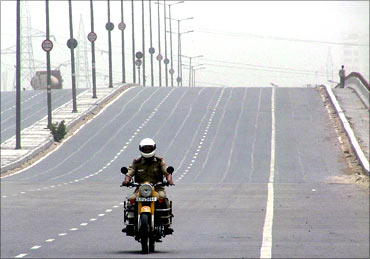
Ignore this cavilling and carping, however, and it is bliss. One can cover 30 km from the DND toll plaza to Greater Noida in 20 minutes legally, although within New Delhi, it may take as long or even longer to travel just a few kilometres.
I was amazed recently driving from Shantiniketan to Greater Noida in 40 minutes. It was like driving in California - quite different from the contentious driving that is customary on our roads.
The sheer ease and convenience apart, another, arguably greater, benefit is the gain in productivity. It is this potential for productivity that, if we can wring from ourselves, is one part of the equation in our pursuit of an improved quality of life.
It is especially important because of our vast numbers, including the much-bruited potential demographic dividend, which is not new. As Babur put it in the 16th century*: " if they fix their eyes on a place in which to settle as the population of Hindustan is unlimited, it swarms in."
. . .
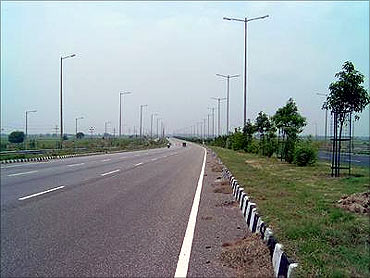
But just consider: the limited instance of the drive on the expressway reveals a productivity gain of three to four times at 20 minutes for covering 30 km, compared with covering only 7-10 km in the same time (or taking three to four times longer for 30 km). That's a gain of 300-400 per cent!
There's another noticeable change: a willingness of everyone to work very much harder at whatever they do. All levels of people, from entrepreneur-managers to electricians, plumbers, gardeners, and day labourers, work so hard that a major change seems to be afoot.
. . .
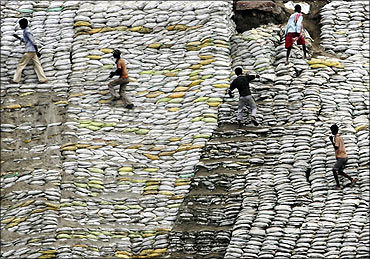
I have also experienced the recalcitrance of some public sector employees and private sector unions, as well as the productive, hard-charging PSU, government, and private sector employees. Yet, in the work attitudes of boomtown Greater Noida, I see impressive energy and application.
The failings
Let me not gloss over the weaknesses. There are big failures in delivery capability, and these arise from two critical lacunae:
a) SOPs, systems and procedures
A major failing appears to be the lack of Standard Operating Procedures (SOPs) even for simple construction jobs, like painting metal: the ramrod, sequential steps of first scrape, then clean, apply primer, apply the first coat of paint and dry off; then apply the second coat...
. . .
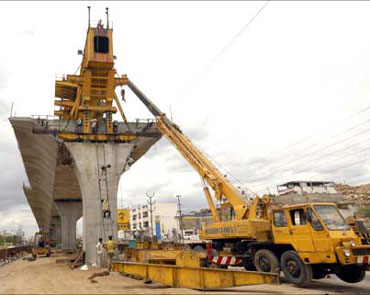
This is partly an endogenous failing, arising from lack of appropriate education/training and discipline. It is also partly attributable to the lack of organised systems and procedures.
b) Infrastructure
An equally critical exogenous failing of the environment is reliable infrastructure, whether in the form of energy (power/electricity), communications, transportation excepting a one-off good stretch of highway, or water and sanitation. Take any single area, say energy. The extent of wasted manpower because of lack of adequate electricity supply is beyond imagination.
Add the bases for learning and functioning competently, and there's education (including training) and health care as a support function. Proper education and training - and discipline - are absolutely essential for learning and developing sound work processes, and for applying them.
. . .
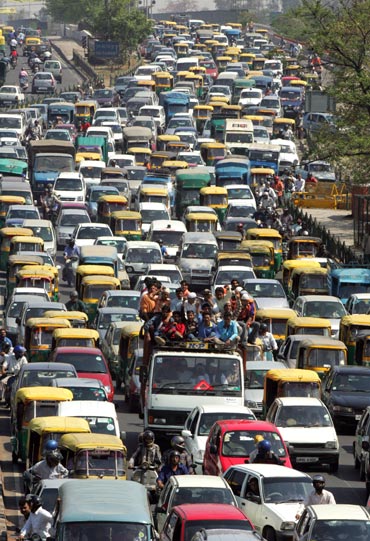
In the last several years, it is evident that we have good people, but they have very poor training, systems and organisation, and equally poor infrastructure. You could call it a lack of leadership and discipline at all levels.
What we need
We need two sets of fixes. The first is for our inherent failings: the lack of SOPs and the need to learn to work to inexorable checklists and timelines.
It is imperative to learn the discipline of project management at all levels - starting from the top, not the bottom! This is a sweeping change that entails shifting from feudal criteria to respect for professional competence and processes.
. . .

Going by the figures, we will build more roads, power plants and factories in the next few years than in the last 60. But the net gain to society will depend on their quality.
If they are shoddy, the gains will be much less. Assets that are not integrated into coherent systems will be less beneficial than if they are integrated to deliver results, e.g. isolated housing without a web of transportation and communication links near where people work; isolated good stretches of highway.
It is imperative that we design and execute the infrastructure to support our productivity. This is an area of weakness we must address and execute more comprehensively.
*Babur-Nama, translated by Annette Susannah Beveridge.